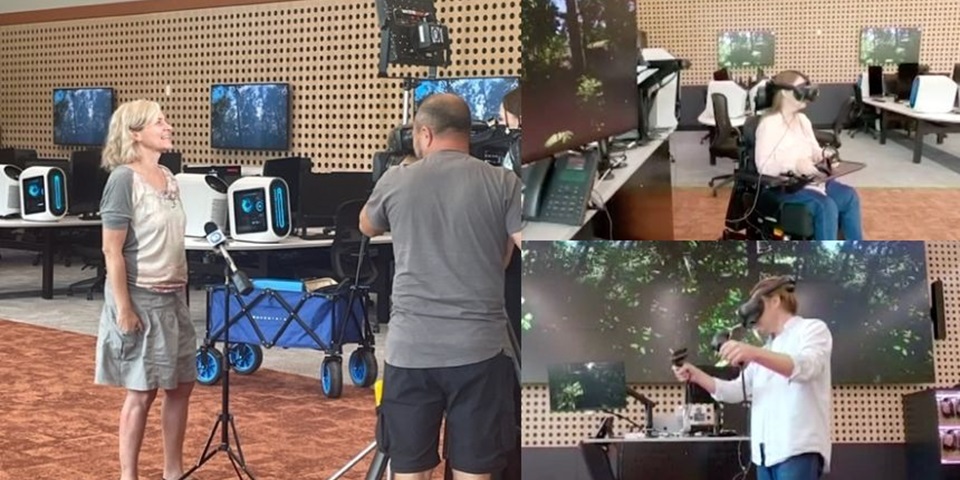News
How virtual reality could help save the environment

Climate change is one of the greatest challenges of our time – one that we all have a role to play in overcoming.
How we generate the collective action required to address the climate change threat is being explored by new research co-led by environmental psychologist Dr Sonja Geiger.
Dr Geiger has found an unlikely ally in meeting the challenge – virtual reality.
Research revealed the technology could be harnessed to increase human empathy towards the environment, with view to shaping more sustainable behaviour.
In the study, participants were given an immersive virtual reality experience where they experienced life as a tree. They began as a seed in the ground and grew into a tall, lush tree in the middle of an expansive forest.
During the experience, participants were able to see animals, move their arms (which were now branches) and look out at the nature surrounding them.
The simulation ended with the forest catching fire and the tree embodied by the participants burning down, along with everything around it.
After the experience, participants reported feelings of connectedness and changed perspective by stepping into the point of view of the tree.
They also said they were able to see the tree’s experience in a wider context, reflecting on the relationship between humankind and nature.
Dr Geiger said these were important shifts in building greater collective empathy towards the natural world.
We want to contribute to new and effective ways of education for sustainable development that make nature’s decline more tangible and emotionally relevant,” Dr Geiger said.
“Ideally, this will contribute to changing opinions and behaviours towards nature protection and climate change mitigation – especially in the area of deforestation, but also beyond.”
Dr Geiger said the experience could have wider implications, particularly if it were put before people in positions of power in key climate impacting industries.
“For example, managers of mining companies,” Dr Geiger said. “To get them to be more aware of the actual impacts they leave on the environment.”
More research will be conducted to discover whether the increased connectedness to nature can lead to a long-term shift towards pro-environmental behaviour.
However, Dr Geiger said the reactions from participants were compelling and would contribute to psychological insight into systemic change.
To read the full study, click here.